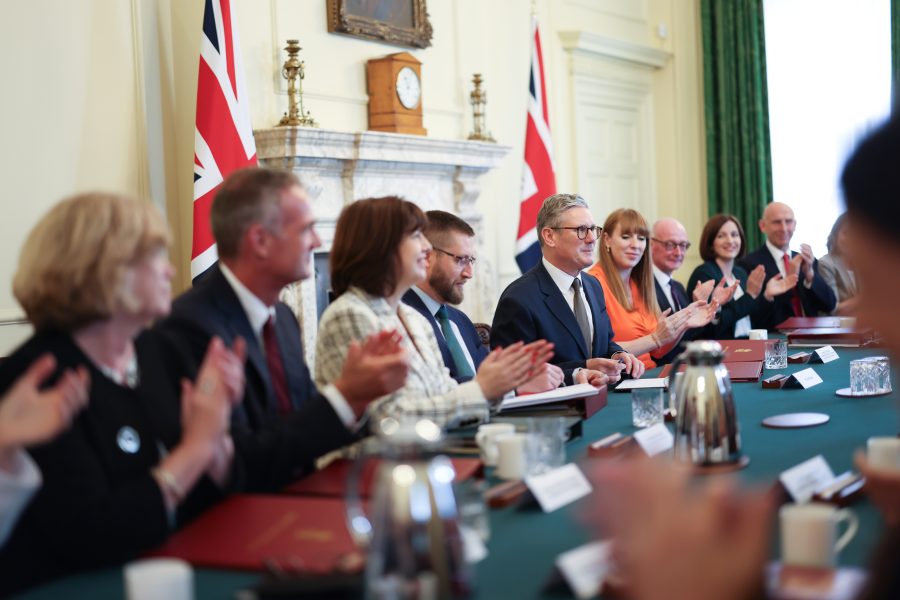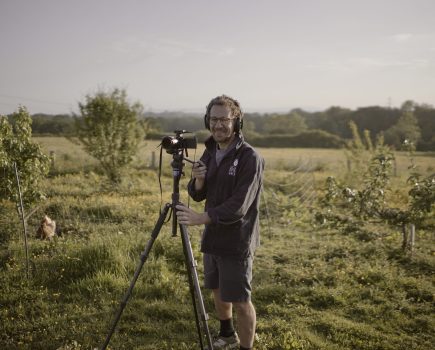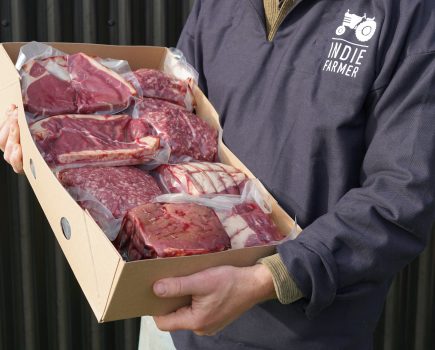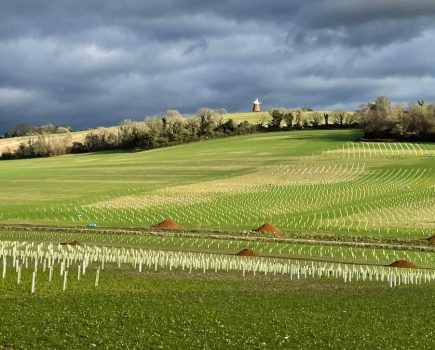There was no shortage of advice for the incoming Government following Sir Keir Starmer and the Labour Party’s landslide General Election victory on 4 July.
Agricultural groups and organisations large and small were quick to tell South East Farmer how they felt the new Government should improve the lot of farmers and landowners, with planning reform and stability high on the list of ‘wants’.
First to congratulate the winners was the Country Land and Business Association (CLA), whose President Victoria Vyvyan said the new Government needed to “listen to and learn from the rural community, as farmers and rural business owners can so often provide the solutions to the problems that government faces”.
She added: “The new Government must hit the ground running. From providing certainty around the farming budget to overhauling the archaic planning system, it needs to go for growth with a robust and ambitious strategy for the countryside.”
A few days later, following Chancellor Rachel Reeves’ set piece speech on housebuilding, the CLA’s Deputy President Gavin Lane added: “The new Government is right to view unlocking economic growth as its core mission, and if there are no housebuilding targets it will struggle to deliver 1.5 million homes over the next Parliament.
“Large strategic sites are important to this delivery, but rural communities cannot be left behind and need a small number of homes to be built in a large number of villages to keep them sustainable.
“Green belt designation needs to be reformed to ensure that more homes are built in the right places. Using grey belt and brownfield sites is important but should not be at the expense of the sustainability of smaller existing settlements and communities within the green belt.”
Strutt & Parker’s rural research director Dr Jason Beedell welcomed Labour’s intention to produce a land use framework, which he felt would “give the sector much needed direction on how to balance the different things now expected from land, including food production, nature recovery and benefits to communities.”
The commitment to a land use framework was also welcomed by Elli Moody, director of policy, campaigns and communications at CPRE, the countryside charity, who said the organisation was “ready to work with the new Government to deliver our vision of a thriving and beautiful countryside for everyone”.
She went on: “In its manifesto, Labour committed to doing things we have long campaigned for; protecting the Green Belt, making homes more affordable and creating a land use framework that joins up decision making about our finite land.
“We want the new Government to show that it recognises the value of the countryside and the people who live there. By committing to a new spatial plan for renewable energy infrastructure, ambitious targets for more social homes and a planning system with local communities at its heart, they would have the opportunity to do just that.”
Mark Lawrinson, from Property Group Beresfords, welcomed “a more strategic approach to green belt land, prioritising brown and grey belt land for development”, which he felt would see “new homes in the right places” that would need to adhere to Labour’s ‘golden rules’ to include affordable housing and public service provision.
The British Safety Council was also quick to offer advice to the incoming Government, with chairman Peter McGettrick suggesting that “people’s health, safety and wellbeing [should be] at the heart of future economic growth”. He added: “We will be looking to Labour to deliver on its promises to improve employment conditions as well as support businesses to succeed and grow.
“The new Government must remember that wellbeing is broader than just mental health, and we also want to see more support for training which supports people’s health and safety, while we upskill our workforce so they can make the most of new opportunities.”
NFU President Tom Bradshaw described the election result as “a reset moment for British agriculture as we work with Sir Keir Starmer’s new government to drive our sector forwards and grow”.
He went on: “Labour’s manifesto recognised that food security is national security, but it is business confidence which forms the foundation of this. With British farmers and growers ambitious for the future, what they – and the public – need are practical policies that revitalise farm business confidence and deliver on our shared mission of food security.
“In a cost-of-living crisis, our ability to provide affordable, climate friendly and high welfare food will be critical for families across the country, as well as underpinning the UK’s largest manufacturing sector, food and drink, and stimulating economic growth.
“That’s why, for Britain’s farmers, the number one priority for the new Labour Government must be to set an increased multi-year agriculture budget for the duration of the next Parliament. This is about investing in the future of British farming – in homegrown food, in the environment and in renewable energy.”
For the National Sheep Association (NSA), chief executive Phil Stocker said the election had provided “an opportunity to build on some good work that has been done, to deal with some of the gaps still left such as a clear vision and a stronger connection between food production, land management, health and the economy, and to finally give some stability and certainty to our sector – which should be seen as strategically vital.”
He said the NSA’s priorities included a commitment to increasing the agricultural budget across the nation, recognition of food production as a public good, appreciation of the value of grazed livestock as a multi-functional farming and land management activity, a clear strategic policy and a commitment to reviewing carbon offsetting, biodiversity net gain and nutrient neutrality policies.
The Soil Association’s chief executive Helen Browning said Labour’s manifesto indicated the party wanted to “improve access to nature, promote biodiversity, decarbonise the energy system and protect our landscapes and wildlife while supporting farmers to shift to more sustainable and nature-friendly farming practices.”
She went on: “Labour have said they will give new powers to regulators and introduce a land use framework. They have pledged to improve public health and ensure half of all public sector food is produced locally or to higher environmental standards.
“We urge that these commitments are now transformed into action. As a priority, Starmer’s government should develop an economic framework that allows money to be generated from penalising the bad things through ‘polluter pays’, and ensure that those on low incomes can access healthy and sustainable diets, with farmers supported on a journey towards cleaner, greener agriculture.”
Meanwhile The Nature Friendly Farming Network (NFFN) called on the Government to “instantly demonstrate its ambition by committing to the rollout of at least 3,000 Higher Tier agreements per year, helping those farmers who are well-placed to do most for the environment and climate and who are often in economically vulnerable parts of the country”.
Chief Executive Martin Lines perhaps spoke for all those offering advice to Sir Keir’s new team when he stressed: “Government needs to step up and deliver by halting nature’s decline and assisting its recovery, mitigating the impact of the climate crisis and building a resilient food system.”
For more like this, sign up for the FREE South East Farmer e-newsletter here and receive all the latest farming news, reviews and insight straight to your inbox.







